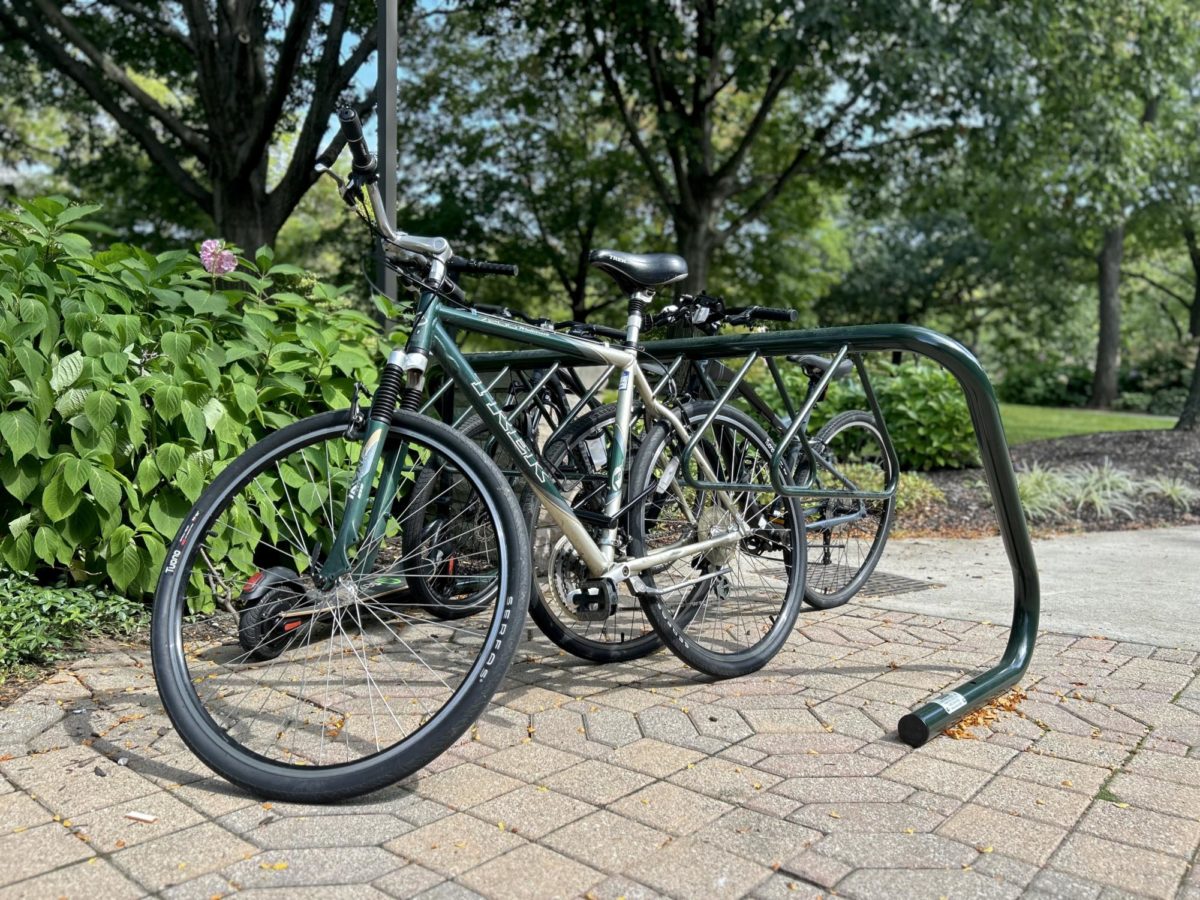On Aug. 29, an article was published in The Daily about Case Quad becoming pedestrians only. Effective immediately, the new policy bans “wheeled recreational transportation devices,” which applies to bikes, scooters, skateboards and rollerblades alike, regardless of if they are motorized. Students are expected to dismount their recreational wheeled devices upon entering Case Quad.
A response from Case Western Reserve University’s Public Safety Division and Transportation Safety Task Force stated that this decision comes as a solution to the increased student population and accidents involving wheeled transportation.
“The university has a greater number of students on campus than ever before, and this is coupled with an increase in the use of numerous types of mobility devices, like bikes, electric scooters and skateboards by our community members. While the university supports the use of bikes, scooters and skateboards as effective modes of transportation, it recognizes that they can pose a safety risk to pedestrians in much the same way that cars can pose a risk to those on wheeled devices.”
They then explained how a committee was formed to help with this decision.
“In response to various near-misses and, unfortunately, several injuries, a committee was convened in early 2023 to evaluate the safe use of bikes, scooters and other wheeled mobility devices on campus. The committee also benchmarked CWRU’s policies and guidelines with other universities and area business districts. Additionally, the committee considered that the Case Quad is one of the heaviest pedestrian traffic areas on campus. Based on the committee’s work and for the safety of students, faculty, staff and campus visitors, the university decided to make the Case Quad a wheel-free zone.”
However, some students, such as fifth-year Oliver Schumacher, co-founder and former president of the board sports club known as The Board Meeting, expressed concern about the new guidelines. He described how many students rely on wheeled transportation to get around campus.
“A large student population commutes, and our parking is so limited and expensive that we are forced to often take our wheels places if you’re gonna get across [campus]. I’m a double major [in] mechanical engineering and theater. So for the last four years of undergrad, I have been running from the Maltz Performing Arts Center or Mather Quad back up to the farthest points of Southside and then back down with a 15-minute time. If I didn’t have a bike or skateboard I wouldn’t make it. Cars simply take too long parking and re-parking and getting stuck at traffic lights at the Adelbert-Euclid stop. So wheels were the only viable option for me for the entirety of undergrad to be on time. With a 15 minute transition period the buses were never fast enough or reliable enough either,” Schumacher said.
While understanding that the increased class sizes have impacted the student population and traffic, Schumacher has felt that this decision was unnecessary.
“When I was a freshman back in 2019 … the old Case Quad had black tarmac with designated bike lanes that were painted in. There was an era where CWRU was supportive of bikers and skateboarders riding around,” he said. He further explained how he has felt the new design of Case Quad has become unwelcoming towards wheeled transportation: “They have a new brick lay with gravel bits as well that are impossible to ride on a skateboard and really rough on a road bike. It feels like it’s anti-wheel architecture when previously it was inclusive.”
Schumacher suggested an electric wheel ban as an alternative to a full wheel ban on Case Quad. The electric scooters were introduced to CWRU in 2019 and have since become a popular mode of transportation around campus. However, Schumacher cited their speed and difficulty to control as a main factor of collisions on campus.
With the new policy, students should be aware that a geofence will be activated on Case Quad meaning electric scooters will slow and stop once it has entered the geofencing area. The university administration also plans on communicating more with student groups throughout the semester to ensure community members are aware of such guidelines.
Schumacher said, “I’m not a big fan of electric vehicles, and it would be great if we had an electric wheel ban, because fast electric skateboards and electric scooters that do run into people and hurt people are often banned at a bunch of different places, such as the Santa Monica boardwalk, because of a lot of collisions that happened there.”




